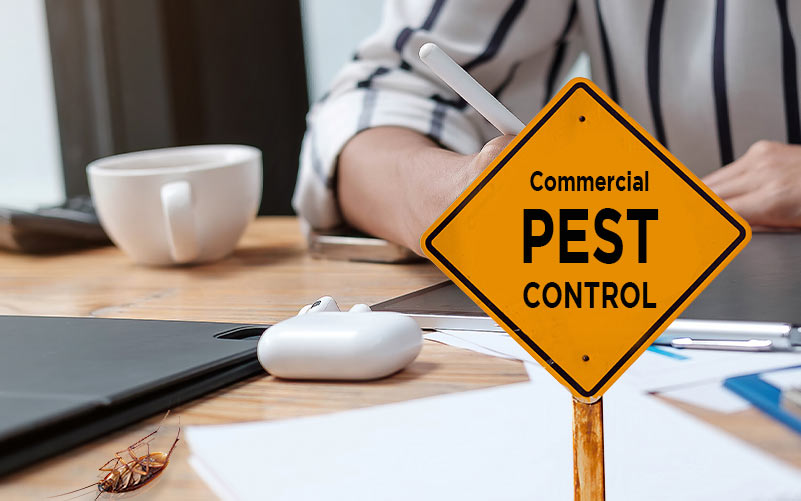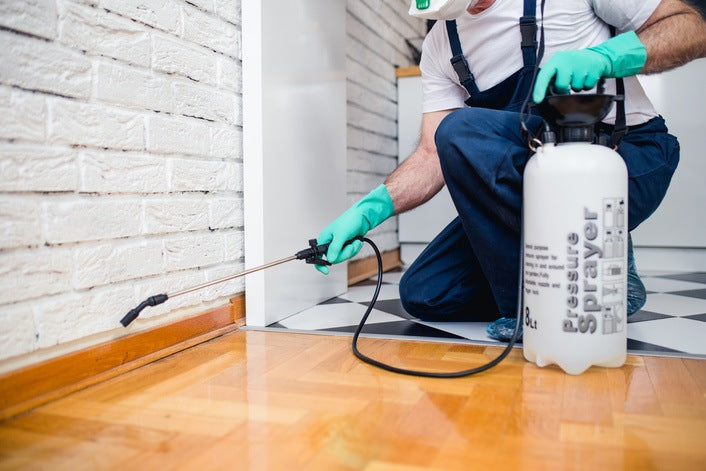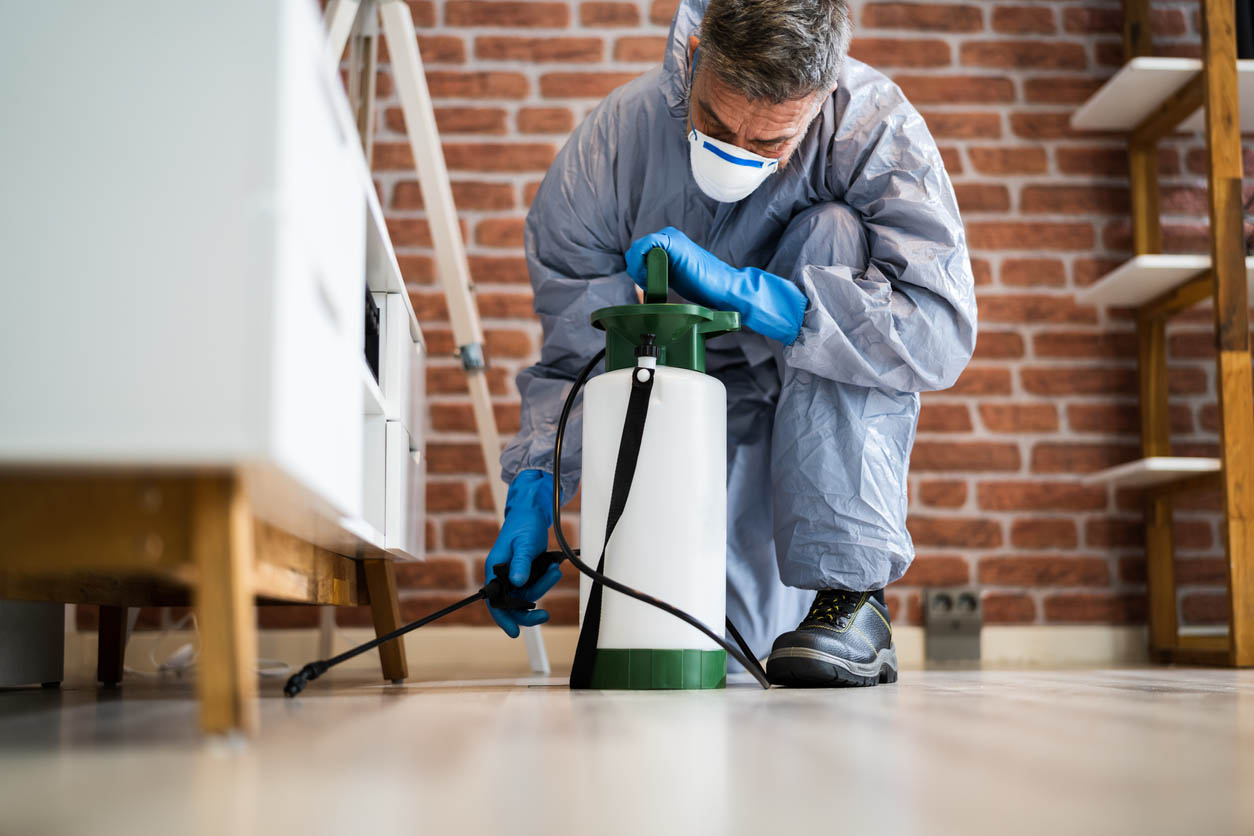Discovering the Different Sorts Of Insect Control Techniques and Their Applications
Insect control is a critical facet of maintaining a healthy and safe environment, whether it remain in household, business, or farming setups. Different methods have been developed and improved for many years to effectively alleviate and handle bug invasions. From chemical techniques that target particular pests to organic strategies that harness all-natural killers, the realm of bug control is vast and diverse. Comprehending the different sorts of parasite control strategies and their applications is important for executing the most lasting and appropriate services. Allow's check out the intricacies of these approaches and how they can be properly used to address pest-related obstacles.
Chemical Insect Control Strategies
Chemical bug control techniques are commonly made use of in agriculture and insect monitoring to properly get rid of or control pest invasions. These approaches involve making use of chemical materials, such as chemicals, herbicides, and insecticides, to get rid of or lower pest populaces that pose a danger to plants, livestock, or human health and wellness. Chemicals, as an example, target particular bugs like rodents, insects, or weeds, disrupting their life cycles or causing direct damage upon call. Herbicides are specifically developed to manage undesirable greenery that contends with crops for nutrients and resources. Insecticides, on the other hand, are used to combat insect pests that can harm plants and send illness.
While chemical bug control strategies can be extremely efficient in managing parasite populaces, they likewise raise problems regarding prospective environmental and wellness dangers. Improper usage or overuse of chemical pesticides can bring about air pollution of soil, water, and air, damaging non-target microorganisms and causing long-term ecological damages. Furthermore, repeated exposure to chemical deposits might posture health and wellness threats to farmworkers, customers, and wild animals. It is vital to adhere to security standards, use incorporated pest management techniques, and consider alternate approaches to reduce the adverse impacts of chemical bug control techniques.
Biological Bug Control Approaches
 Biological parasite control approaches make use of living microorganisms to decrease and manage pest populations in a eco pleasant and lasting fashion. This method entails presenting natural predators, bloodsuckers, or microorganisms to control pests without the requirement for synthetic chemicals. One common approach is the launch of ladybugs to fight aphids in gardens, as ladybugs are all-natural predators of these damaging pests. An additional instance is making use of Bacillus thuringiensis (Bt), a bacterium that generates toxic substances deadly to certain insect larvae, to control caterpillars and insects.
Biological parasite control approaches make use of living microorganisms to decrease and manage pest populations in a eco pleasant and lasting fashion. This method entails presenting natural predators, bloodsuckers, or microorganisms to control pests without the requirement for synthetic chemicals. One common approach is the launch of ladybugs to fight aphids in gardens, as ladybugs are all-natural predators of these damaging pests. An additional instance is making use of Bacillus thuringiensis (Bt), a bacterium that generates toxic substances deadly to certain insect larvae, to control caterpillars and insects. 
Organic pest control approaches supply a number of benefits over chemical approaches. Generally, organic parasite control techniques present a natural and reliable alternative to standard chemical treatments, advertising a well balanced ecosystem and healthier environments.
Physical Bug Control Approaches
Utilizing physical approaches to manage parasites includes the use of mechanical or non-chemical methods to reduce and handle insect problems effectively. One common physical pest control approach is the installation of internet, fencings, or displays to block pests from going into certain locations.
An additional physical approach is using traps, such as breeze catches for rats or scent catches for pests. These catches purpose to record look what i found pests without presenting any kind of risk to humans or the environment. Additionally, physical control techniques can include strategies like handpicking bugs off plants, utilizing vacuum cleaner gadgets to eliminate bugs, or utilizing warm treatments to eliminate bed bugs and other pests in infested locations.
Integrated Parasite Monitoring Approaches
Executing a holistic approach to pest management, Integrated Parasite Monitoring (IPM) approaches intend to integrate different efficient techniques to control and avoid insect infestations while lessening ecological effect and making certain lasting insect control methods. IPM includes the combination of several control techniques such as biological control, cultural practices, mechanical control, and the cautious usage of pesticides.

Furthermore, IPM stresses the importance of tracking and analyzing pest populations to establish the most suitable control methods. By applying IPM techniques, pest control initiatives come to be extra targeted and reliable, reducing the threats related to extreme pesticide use and promoting lasting parasite management services.
All-natural and Organic Parasite Control Options

One preferred organic pest control approach is neem oil, obtained from the click now seeds of the neem tree, which serves as a repellent and interferes with the growth and growth of insects. Diatomaceous earth, an all-natural silica-based powder, is another reliable organic pest control option that functions by dehydrating bugs upon call. By including all-natural and natural parasite control choices into parasite management approaches, people can successfully manage bugs while decreasing injury to the atmosphere and promoting sustainable methods.
Final Thought
To conclude, various bug control strategies such as chemical, biological, physical, incorporated insect monitoring, and natural choices are offered for efficiently taking care of parasite problems. Each technique has its very own advantages and applications relying on the kind of pest and the atmosphere. find more information By understanding the various types of parasite control strategies and their applications, individuals can make informed decisions on one of the most suitable strategy to regulate pests and protect their property.
Chemical pest control techniques are extensively made use of in farming and parasite monitoring to properly get rid of or regulate pest problems - Orem Pest Control. All-natural bug control techniques include utilizing biological control agents, such as bloodsuckers or killers, to handle bug populations. By incorporating natural and all-natural bug control choices into parasite monitoring approaches, people can properly regulate parasites while decreasing injury to the setting and promoting lasting techniques
In conclusion, numerous insect control methods such as chemical, organic, physical, incorporated bug administration, and natural alternatives are offered for efficiently taking care of bug infestations. By understanding the various types of parasite control methods and their applications, people can make educated decisions on the most ideal method to control bugs and protect their home.